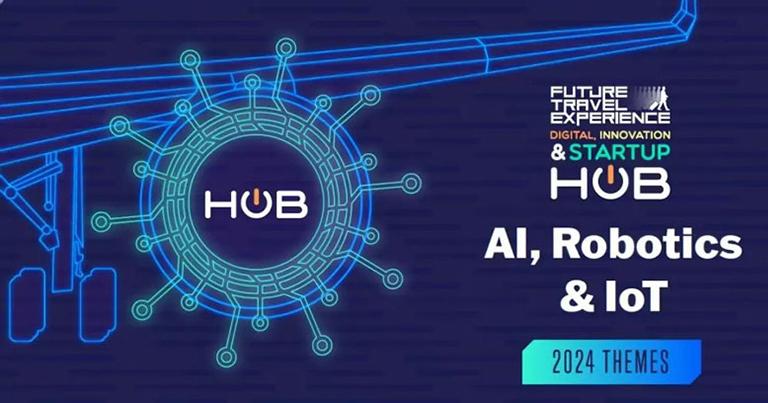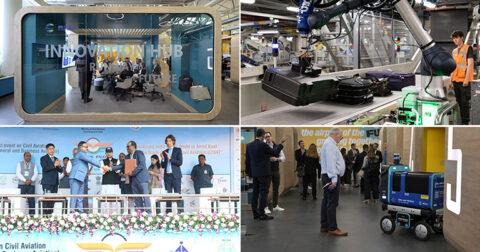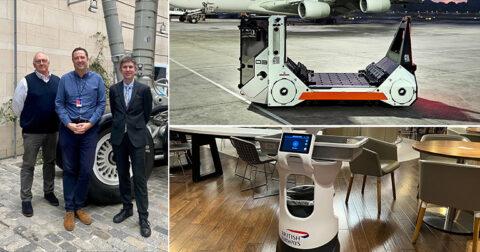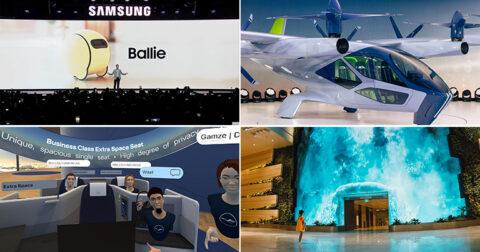Future Travel Experience (FTE) firmly believes that the best innovation is always collaborative innovation. Our FTE Communities – the FTE Digital, Innovation & Startup Hub, Baggage Innovation Working Group and World Airport Retailing Working Group – play an important role as catalysts and enablers of industry transformation. In part 2 of our focus on collaborative innovation, we share exclusive interviews with Singapore Airlines, Tampa International Airport, Aena, and the FraAlliance joint venture between Fraport and Lufthansa. They each provide fascinating insights into how their organisations are innovating through collaboration to enhance CX, optimise operational efficiency and drive industry transformation. You can view part 1 of our focus on collaborative innovation, featuring Schiphol Group, Aeroporti di Roma, IndiGo and GMR Hyderabad Airport, by clicking here.
Singapore Airlines: “Collaboration and co-creation are key components in addressing industry-wide challenges, creating new travel experiences for our customers”
The digital strategy of Singapore Airlines – a Headline Partner of FTE APEX Asia Expo, taking place in Singapore on 19-20 November 2024 – plays a crucial role in keeping the organisation vibrant and nimble, while ensuring it remains at the forefront of technological advancements and customer-centric innovation. One of the pillars of the airline’s digital strategy is innovating through collaboration. “Our approach is multifaceted, collaborating with other airlines, industry stakeholders, technology partners, research and development institutions, as well as open innovation ecosystem partners to exchange knowledge, co-develop solutions and drive innovation in the travel and aviation sector,” says Choo Mun Fai, Vice President, Digital Innovation, Singapore Airlines. “We believe that collaboration and co-creation are key components in addressing industry-wide challenges, enhancing our customers’ travel experiences.”
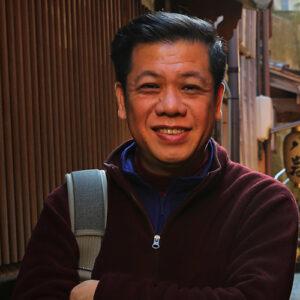
Singapore Airlines also works closely with open innovation communities, startups and entrepreneurs through its Digital Innovation Lab, KrisLab, to explore and experiment with new, emerging and innovative technologies and solutions – whether they are from the travel and aviation space or other verticals. “An example is our partnership with a startup to develop a crew language competency app that leverages Artificial Intelligence and speech recognition technology to offer our crew a platform to enhance their delivery of onboard announcements through asynchronous learning, enabling them to enhance their language skills and improve their enunciation,” Choo explains. “Such initiatives are a testament to our dedication to leveraging technology to improve efficiency. Collaborating with startups gives us access to technologies and expertise, providing advantage in accelerating innovation. In addition, it also cultivates a culture of continuous learning and adaptability within Singapore Airlines, which is crucial for our long-term success and resilience in a rapidly evolving global landscape.”
As part of this focus on collaborative innovation, efforts will be focused on the Singapore Airlines Accelerator programme. “KrisLab will continue to work with partners in the open innovation ecosystem to onboard startups, technology partners and other ecosystem players to create innovative solutions and address the gaps in the industry,” Choo shares. “The Accelerator programme serves as the platform for startups to showcase their ideas, collaborate with Singapore Airlines to validate their solutions, and shape the future of travel.”
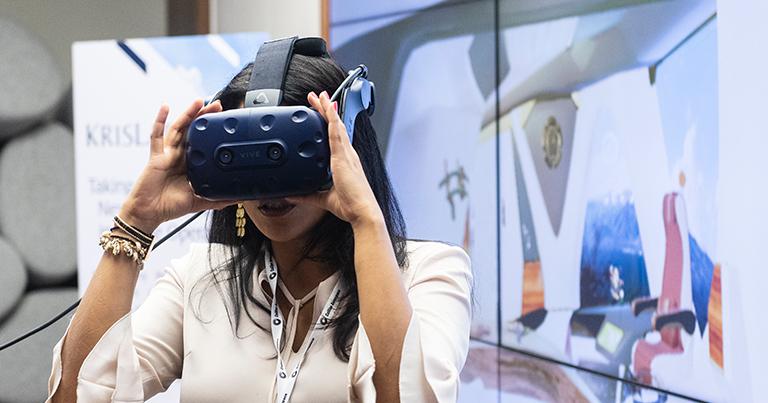
Singapore Airlines is currently undertaking several key digital transformation projects. These include enhancing digital channels to provide a personalised offer and experience, optimising operations, building a productive workforce and creating new business revenue enabled by digitalisation. “Our digital strategy also focuses on cultivating a digital culture, building digital capabilities, adopting technology and innovating through collaboration,” Choo adds.
The airline is also embracing Generative Artificial Intelligence (Gen AI), an emerging technology, and has developed a blueprint for its implementation across the organisation. “The blueprint is a strategic plan aimed at identifying impactful Gen AI use cases, and integrating the capabilities of Gen AI into the way we work and manage associated risks with practical governance,” Choo explains. He adds that these exemplify Singapore Airlines’ commitment to leverage emerging technologies to improve operations and enhance customer experiences, highlighting its proactive approach to innovation. “By continuously exploring and embracing emerging technologies, we can enhance our competitiveness and ensure we remain a leader in the airline industry.”
Register for FTE APEX Asia Expo 2024 >>TPA’s technology vertical active across many collaborative platforms and considering the most innovative solutions
Tampa International Airport’s (TPA) technology vertical and management are very actively involved across many collaborative platforms, ensuring TPA is considering the most innovative solutions. The airport is a Corporate Partner of the FTE Digital, Innovation & Startup Hub and has also founded a small technology group with a core group of airline leaders. “We meet on a quarterly basis to collaborate on solutions for specific problems,” shares Doug Wycoff, Senior Manager of Passenger Processing & Innovation, Tampa International Airport. “Our research visits to other airports, to share where we are going and to understand where they are going, unquestionably keep us up-to-date with the latest challenges and solutions within the industry.”
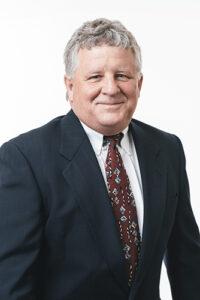
Being a part of the FTE Digital, Innovation & Startup Hub has been key for TPA on several fronts. “The FTE Hub provides great insights into where the industry is headed, as well as providing a chance to partner with sources of potential solutions,” says Wycoff. “These solutions may need to be adjusted to meet TPA’s needs or considering the unique features of a U.S. airport. We feel our participation has been invaluable since the beginning, and always look forward to the next round of ideas.”
TPA recently hosted a joint in-person meeting of the FTE Digital, Innovation & Startup Hub and FTE Baggage Innovation Working Group. This collaborative event attracted over 50 in-person attendees and 35+ online, who exchanged ideas, strategies, and insights. Participants engaged in a series of dynamic discussions, took part in exclusive airport tours, enjoyed social events including a golf tournament and Tampa Bay Lightning ice hockey game, and had the opportunity to listen to compelling startup pitches as well as insightful presentations delivered by International Airlines Group (IAG) and TPA officials. “This was the second year that TPA has been fortunate enough to host this event in Tampa,” Wycoff explains. “Both years we had over 50 onsite attendees from at least 7 countries, 6 to 8 airlines and 12 to 15 airports. Seeing and hearing the innovative capabilities of our global partners so many times puts TPA at the forefront of key solutions that have been proven on a global scale, but haven’t yet surfaced in airports in the United States. Coming to TPA and to Florida in February is attractive and brings a lot of engagement, but the FTE community’s first-class handling of this event makes hosting rewarding and simple to execute.”
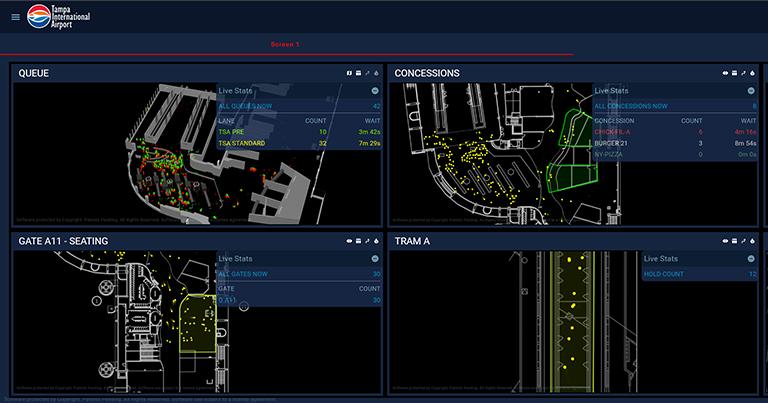
The airport’s digital transformation effort is focused on making efficient, automated decisions for its team, as well as changes that enhance all aspects of the customer experience for travellers. “One core component is that we continue to move forward with our digital display information throughout the facility in response to real-time FIDS data. Driving our key signage based on what the passenger is experiencing allows us to get important information to them quicker,” says Wycoff. “One of our industry partners has helped us create numerous new LiDAR solutions that provide digital decisions that are based on data prior to an event happening with a guest. We feel comfortable this will allow our team to respond to a potential issue ahead of any possible impact.”
TPA’s innovation team started exploring the forward-thinking terminal expansion over a year ago, considering how the new terminal will look and feel in 2028, when it is scheduled to open. “We’re trying to understand what the passenger journey will look like in 2028 and how we can use those ideas to enhance the terminal experience,” says Wycoff. “Several of the key elements we certainly hope to have in place will be our complete LiDAR line of solutions, to allow for the most efficient and easily managed terminal operation possible. This will include enhancing gate management, passenger flow and the gate-hold experience by proactively managing our gate loads. We also hope to use our biometric technology to ensure our passengers will have a truly contactless journey from curb to gate.”
Learn more about the FTE Digital, Innovation & Startup Hub >> Learn more about the FTE Baggage Innovation Working Group >>Aena engaging with multiple stakeholders through startup accelerator programme and Airports for Innovation network
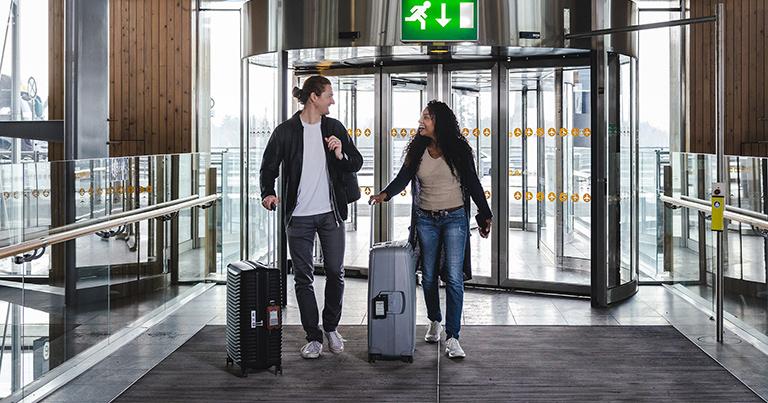
Aena has a Strategic Plan for Innovation and Digital Transformation, serving as the roadmap for the development of all innovation initiatives for the company. In implementing this strategy, Aena uses a variety of support tools, leveraging talent both within and outside the organisation.
“In the realm of internal support, we engage with various stakeholders in the industry, ranging from small startups to major technology corporations, as well as airports, airlines, and technological centres, among others,” explains Pablo Lopez Loeches, Head of Ideation & Entrepreneurship Division, Innovation & Customer Experience Directorate, Aena.
Examples of collaborations include:
- Collaborating with startups through the Aena Ventures startup accelerator programme.
- Partnering with technology companies to conduct technology validations and pilot tests, facilitated by Collaboration Agreements.
- Establishing working groups with airports and airlines globally to align efforts in finding solutions that enhance customer experience, ensure more efficient operations, and achieve the sustainability targets of the sector. A notable instance of such collaboration is the Airports for Innovation working group, established by Aena and Aeroporti di Roma in 2021, which also includes Munich, Athens, Nice, Dallas, Vancouver, Dubai, and Oman airports.
Aena Ventures, an open innovation programme for startups, is nearing the conclusion of its second edition. “We are currently in the acceleration phase, testing the innovative solutions from the winning startups as a precursor to their potential future integration into the organisation,” says Lopez Loeches. “This second edition was launched by identifying five business challenges and designing a call to the national and international startup ecosystem. This call received 514 proposals from 372 distinct startups across 40 countries globally.”
Subsequently, five startups were selected, one for each challenge:
- Challenge 1: ‘Airport Destination’ – StressFreeCarRental (UK).
- Challenge 2: ‘Data-Driven Airport’ – Copenhagen Optimization (Denmark).
- Challenge 3: ‘Airport Efficiency’ – BagID (Norway).
- Challenge 4: ‘Virtual Airport’ – DeuSens (Spain).
- Challenge 5: ‘Greener Airport’ – Hovyu (Netherlands).
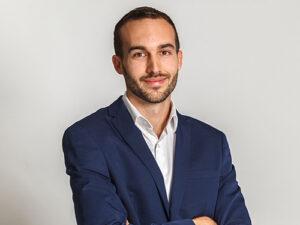
“Since November 2023, the chosen startups and their Aena mentors have been fervently working on developing Proof of Concepts or pilot tests for their solutions within a real airport setting,” Lopez Loeches explains. “The teams are set to present their results at the final Demo Day of this edition, scheduled to take place in Barcelona at the end of April.”
BagID – an Airport Lab Network Partner of the FTE Baggage Innovation Working Group – is trialling its solution involving electronic tags that facilitate digital, at-home baggage check-in by creating an electronic bag tag, as well as luggage tracking using Bluetooth technology. “This solution is being tested with actual travellers flying to Norway with Norwegian or Widerøe from Alicante-Elche Miguel Hernandez, Josep Tarradellas Barcelona-El Prat, Gran Canaria, and Málaga-Costa del Sol airports,” Lopez Loeches shares. “It also involves RFID technology testing at Palma de Mallorca Airport for post-check-in luggage tracking. Hence, its solution, integrating Bluetooth and RFID, aims to provide comprehensive real-time tracking and traceability of luggage, within and beyond airport premises.”
Copenhagen Optimization – an Airport Lab Network Partner of the FTE Baggage Innovation Working Group – is evaluating a new service, MySlot, based on its virtual queuing solution, at Tenerife North-Ciudad de La Laguna Airport. “MySlot offers users a swift and streamlined experience through airport security by allowing them to book a slot in advance,” says Lopez Loeches. “Additionally, tests are being conducted on the company’s queue prediction and optimisation platform.”
DeuSens is crafting an immersive virtual reality experience with a Boeing 737-800 for training of airport firefighting teams. The pilot includes multiple real-user testing sessions to ensure the developed solution meets its intended goals. The offering comprises both a learning component for firefighters and an evaluation module for trainers.
Hovyu has deployed a system based on its novel CO2 capture technology at Josep Tarradellas Barcelona-El Prat Airport, specifically within the natural gas boilers of Terminal 1. “This trial aims to assess the technical and economic feasibility of the proposed technology and to quantify the amount of CO2 capture achievable to prevent its release into the atmosphere,” Lopez Loeches explains.
Meanwhile, StressFreeCarRental is testing its car rental service through the Aena Travel website, enabling any user to rent a vehicle for any international destination outside Spain directly from the site. This service is designed for simplicity and includes the option to book additional services related to the vehicle hire.
Learn more about the FTE Communities >>Fraport and Lufthansa alliance integrating “profound understanding of customer requirements with transformative potential of digitisation and automation”
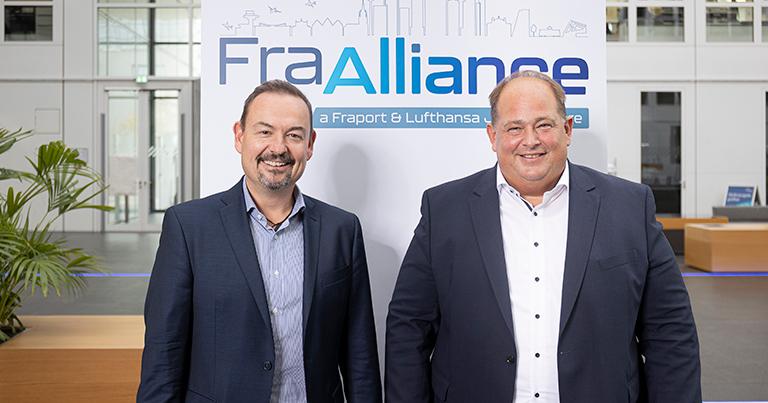
Through their joint venture company FraAlliance, Fraport and Lufthansa are strengthening their cooperation in strategic and operational matters at Frankfurt Airport, thereby deepening their longstanding partnership. The starting point is to develop a joint understanding of customer needs in order to enhance service quality and increase satisfaction, as well as to design and implement new products and services at Frankfurt Airport, as Dirk Schusdziara and Jörg Harnisch, Managing Directors, FraAlliance, share in this interview.
The vision is to provide travellers with Europe’s smoothest transfer and best intermodal experience. “We design individual, sustainable, and innovative products and services to make FRA Terminal 1 the #1 choice,” says Schusdziara. “The travel experience shall become more attractive, so it is crucial to integrate the profound understanding of our customer requirements with the transformative potential of digitisation and automation.”
As customers typically do not differentiate who is responsible for which touchpoint along their journey, FraAlliance believes it is vital to create a holistic view of passenger pains and needs in order to enhance relevant processes and the overall customer experience. “The growth potential and business scope of FraAlliance can be described in three development phases: Exploit (optimising existing business models), Expand (further development of system boundaries), and Explore (new business logic and growth beyond what exists),” Harnisch explains. “In order to reach the next level, it is important to collaborate, trust and communicate within the system partners.”
FraAlliance has developed, together with Fraport and Lufthansa, a new security lane concept with computed tomography (CT) screening – the MX2 from Vanderlande (an Airport Lab Network Partner of the FTE Baggage Innovation Working Group). “This is now being used for the first time worldwide at Frankfurt Airport,” Schusdziara shares. “It offers not only processes tailored to passengers, but also for staff needs.”
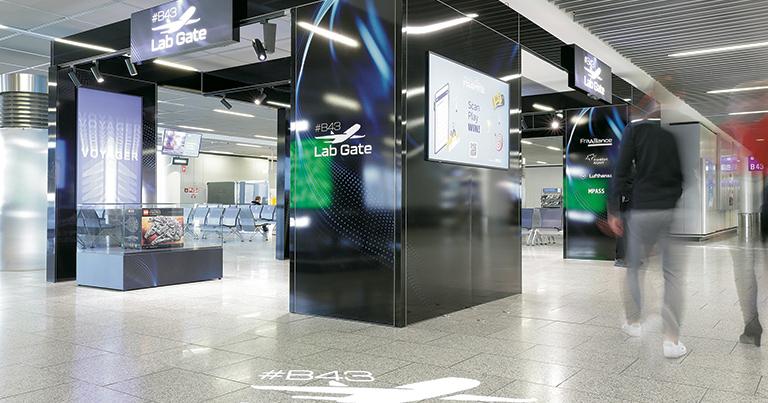
FraAlliance also uses a shared data platform to combine the data of the parent companies and therefore make more informed and better statements about passenger flow and orientation within the terminals. “For example, the FraAlliance initiative with a real customer impact launched last year was making the real-time waiting times at the security checkpoints available in the Lufthansa app and offering passengers more transparency on their journey,” says Harnisch.
The test gates A16/A17 project is a good example of current initiatives to further enhance the passenger experience. Here, FraAlliance has the opportunity to quickly and easily test and validate various measures on topics such as the boarding process or passenger information management in the form of iQR codes. “The basis for our projects is understanding relevant trends, as well as current and future traveller needs along the customer journey,” Schusdziara explains. “By prioritising seamless interactions and personalised engagement, we aim to create memorable experiences that not only meet but exceed customer expectations.”
FraAlliance has also created a multifunctional space within gate B43, the so-called ‘Lab Gate’, which functions as a versatile and customisable space for testing new innovative and surprising product and service ideas. “A first use case – ‘FRAwards#B43’ – has been launched and allows customers to collect points by playing mini-games that can then be exchanged for vouchers of participating stores at the airport,” Harnisch adds. “Special activities will be launched during the European Football Championship and the Olympic Summer Games.”
Hear more from Lufthansa Group at the co-located FTE EMEA and FTE Ancillary & Retailing events, taking place in Dublin on 11-13 June 2024. Jost Daft, Head of Order Transformation, Lufthansa Group, will deliver a presentation in the FTE Ancillary & Retailing conference titled ‘Modern Airline Retailing at Lufthansa Group: Insights and Outlook’.
Register for FTE EMEA and FTE Ancillary & Retailing – one registration provides access to both events >>IAG, GOAA, Ryanair, VIE, PANYNJ, MAN, Isavia, LTN and DataArt among latest to join FTE Hub; next members’ meeting on 11 June 2024 hosted by Enterprise Ireland and AWS
Launched in 2018, the FTE Digital, Innovation & Startup Hub is a truly unique community designed specifically for the individuals and organisations who are at the forefront of digital transformation and innovation in the aviation industry. Corporate Partners – including many of the industry’s most forward-thinking airlines, airports and vendors – connect on a regular basis throughout the year and the FTE Hub is where meaningful relationships are forged, and learnings, ideas and case studies are continually shared. It is a one-of-a-kind community where members can openly share their expertise and experiences, discover new partners and inspiration from outside of the sector, explore opportunities to collaborate, and deliver positive change. Corporate Partners also have access to hundreds of approved startup members, each of which has products and services specifically designed to help advance the air transport industry.
International Airlines Group (IAG), Greater Orlando Aviation Authority, Ryanair, Vienna International Airport, Port Authority of New York and New Jersey, Manchester Airports Group, Isavia, London Luton Airport and DataArt are among the latest Corporate Partners to join, while there are now almost 450 approved startup members. The three core themes for 2024 are Artificial Intelligence (AI), Robotics and the Internet of Things (IoT) and these topics have been at the forefront of our FTE Hub meetings this year.
The next in-person meeting of the FTE Hub will be hosted by Enterprise Ireland and Amazon Web Services (AWS) at the AWS HQ in Dublin on 11 June 2024.
Learn more about the FTE Digital, Innovation & Startup Hub >>